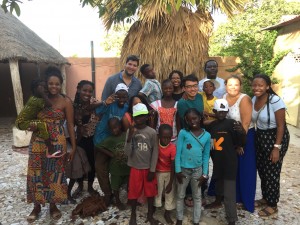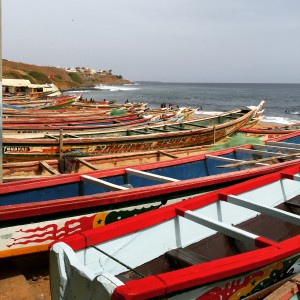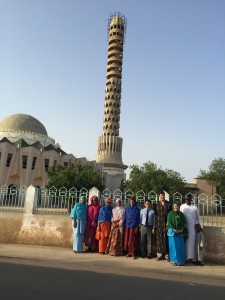Timothy Morgan
Summer 2015
Reflecting on my Summer in Dakar…
I am a person who craves the non-typical; anything I can find that will set me apart from the crowd. I think that’s what attracted me to something like Dakar, Senegal, a country and region which had been far from my mind, despite all my college-level French classes. Browsing the options, for an experience abroad through which I could improve my French speaking ability, I submitted my application for the Washington University in St. Louis Summer session in Senegal along with several other applications for various places, and didn’t have a second thought. When the professor reached out to me personally to see if I was going to continue the application process, however, I unknowingly boarded the fast train to traveling in a place I knew virtually nothing about.
While this was my first time out of the country, I imagine the first day hits everyone the hardest. I felt that the preparation, immunizations, and telling people of all my plans had adequately prepared me, but I didn’t really realize what I was doing until our plane was suddenly flying low, over clay-colored houses and earth, and I stepped off the plane to inhale the driest air I’d ever breathed. These surreal sensations juxtaposed with jet lag and stress made the adventure of the first day feel that much more like a dream. Top it all off with a hectic airport process, people everywhere speaking a different language, and my first experience taking the often perilous car ride to anywhere in Dakar’s questionably constructed infrastructure, and I was ready to call it a day.
My first day was a strong foreshadowing, a daily sense of adventure and opportunity, thanks mainly to the quick baptism into living and functioning independently in Dakar given by our guides. Our living conditions consisted of us (myself, one student from John’s Hopkins, and 6 from Wash U) living in the upstairs of a relatively high quality villa while our professor (who was also the director of the program) lived below with her husband, two children, and our guide Aimé. There were two classes offered, for a total of 6 credits, during our month-long stay: a language course, either French or the local language of Wolof, and History of Senegal. As part of the latter course, we each were required to perform our own independent project based on our personal interest.

I found an internship with a Childfund affiliate in a poor part of town, so my day would consist of 3 hours of class in the morning, then going to my internship after lunch. On the weekends, we would take trips, or have opportunities planned to see Dakar, or experience something relevant to the History of Senegal class.

There are many things liberating about living in Senegal. For instance, there are almost no stop lights anywhere outside of the nicer part of downtown. Also, aside from a few chain stores that sold canned food or electronics, there is no set price used by vendors on the street, crowded marketplaces, and taxis. Essentially, one must understand how to haggle and barter in order to go anywhere or do anything. The unpredictability of losing power for a few minutes and dubious WiFi capabilities fundamentally change the way our American minds are wired to think. Africans generally don’t subscribe to the same concept of “time is money.” You could go to a restaurant and wait an hour or more for your food (which may or may not be correctly prepared), and then wait another hour for the check. By the trip’s end, I was happy to be able to take a taxi independently by greeting in Arabic, exchanging salutations in Wolof, negotiating a price based on the distance in French, and having a working knowledge of realistic taxi prices based on how far I was traveling.

Among the most fascinating places I traveled were the holy city of Touba, the culturally rich sea town of Saint Louis, and islands Goree and N’Gor.
As the month continued and I became more and more adjusted to life in Senegal, I found myself drift further away from my classmates and closer to the people I had met in Senegal. Senegalese simply think differently from Americans. One of my classmates was doing her independent research project on psychological depression, and based on her interviews with a wide demographic of Senegalese people, one conclusion she came to was that the emotions of anger and discontent aren’t retained based on past traumatic experiences like she expected them to be. I can’t say whether it’s the vast Muslim influence in the region, the crippling dryness of the climate, or the simple, yet breathtaking beauty of the coast as well as the countryside, but life in Senegal was both eye-opening and equipping with the international perspective I had craved so much. Several times I was asked if I would return to Senegal. With difficulty I responded with “yes, maybe/hopefully so” but with uncertainty in my voice. The reason for this is my excitement to see and experience as many different places in Africa and the world as I can. God willing, Senegal has been the first stop on a list of many.